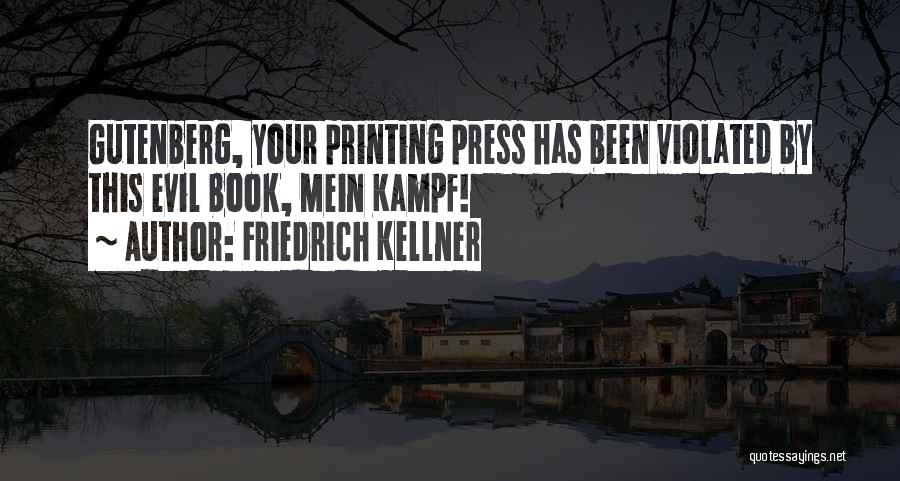Quotes & Sayings About Gutenberg
Enjoy reading and share 50 famous quotes about Gutenberg with everyone.
Top Gutenberg Quotes
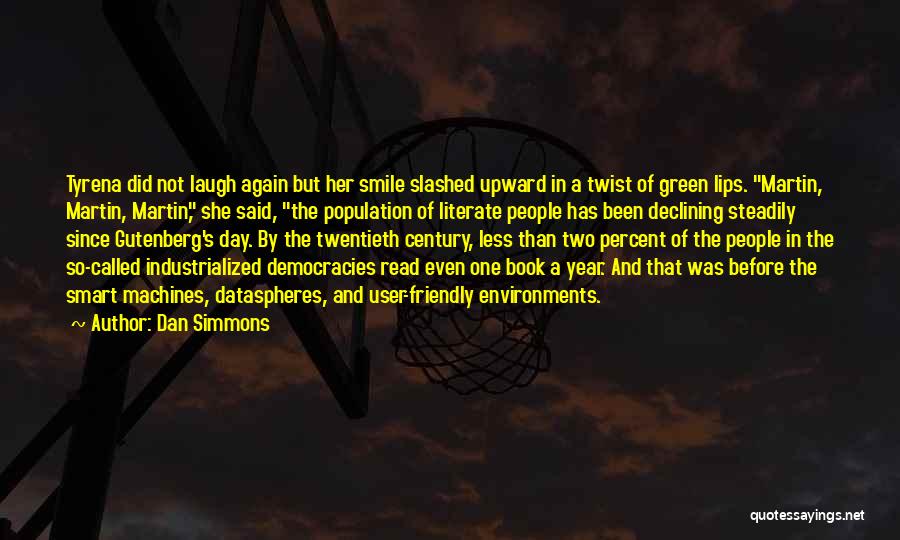
Tyrena did not laugh again but her smile slashed upward in a twist of green lips. "Martin, Martin, Martin," she said, "the population of literate people has been declining steadily since Gutenberg's day. By the twentieth century, less than two percent of the people in the so-called industrialized democracies read even one book a year. And that was before the smart machines, dataspheres, and user-friendly environments. — Dan Simmons
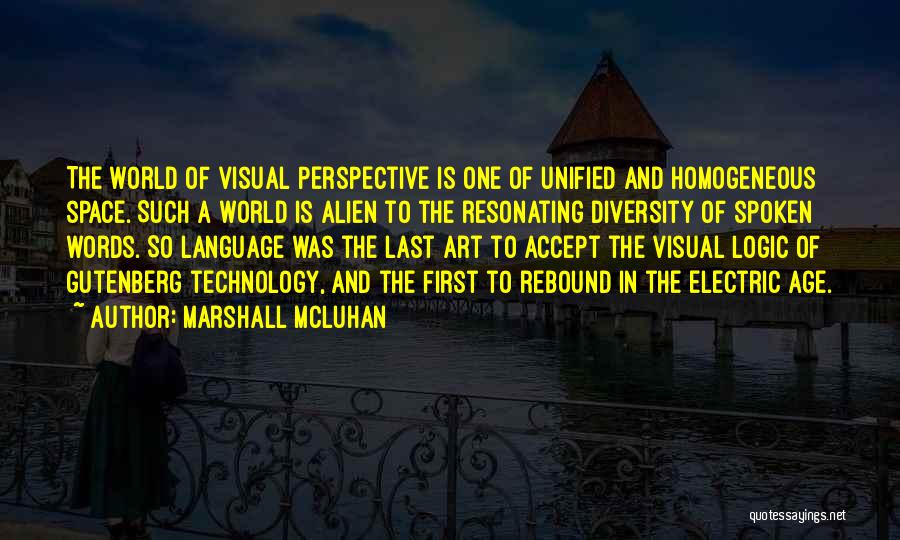
The world of visual perspective is one of unified and homogeneous space. Such a world is alien to the resonating diversity of spoken words. So language was the last art to accept the visual logic of Gutenberg technology, and the first to rebound in the electric age. — Marshall McLuhan
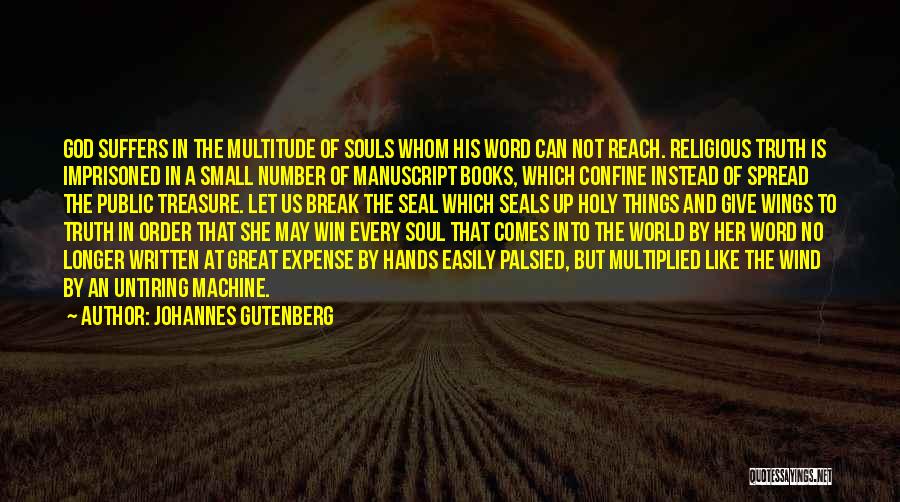
God suffers in the multitude of souls whom His word can not reach. Religious truth is imprisoned in a small number of manuscript books, which confine instead of spread the public treasure. Let us break the seal which seals up holy things and give wings to Truth in order that she may win every soul that comes into the world by her word no longer written at great expense by hands easily palsied, but multiplied like the wind by an untiring machine. — Johannes Gutenberg
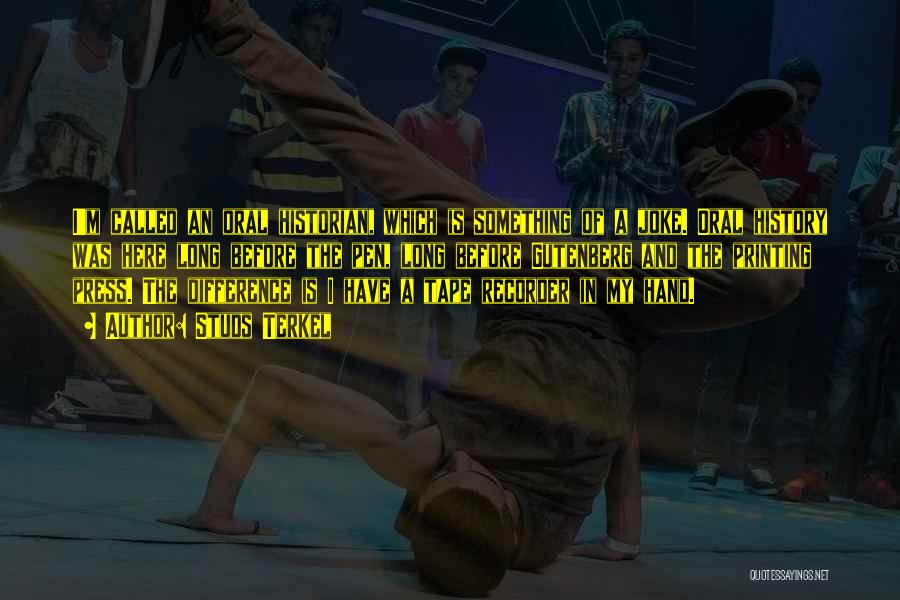
I'm called an oral historian, which is something of a joke. Oral history was here long before the pen, long before Gutenberg and the printing press. The difference is I have a tape recorder in my hand. — Studs Terkel
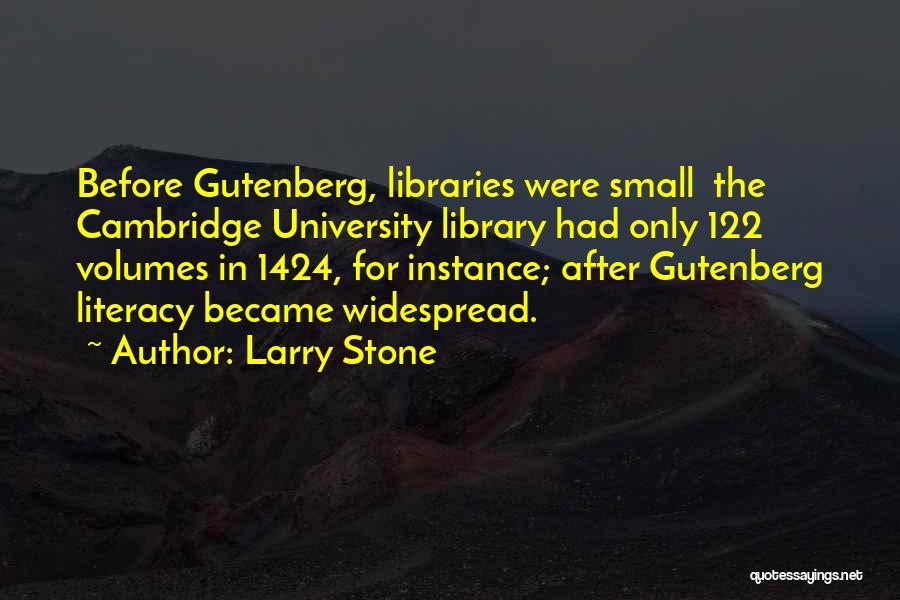
Before Gutenberg, libraries were small
the Cambridge University library had only 122 volumes in 1424, for instance; after Gutenberg literacy became widespread. — Larry Stone
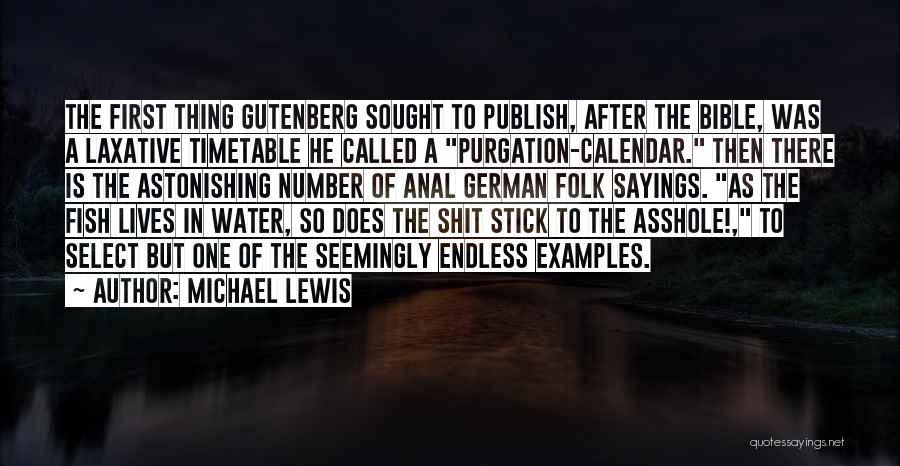
The first thing Gutenberg sought to publish, after the Bible, was a laxative timetable he called a "Purgation-Calendar." Then there is the astonishing number of anal German folk sayings. "As the fish lives in water, so does the shit stick to the asshole!," to select but one of the seemingly endless examples. — Michael Lewis
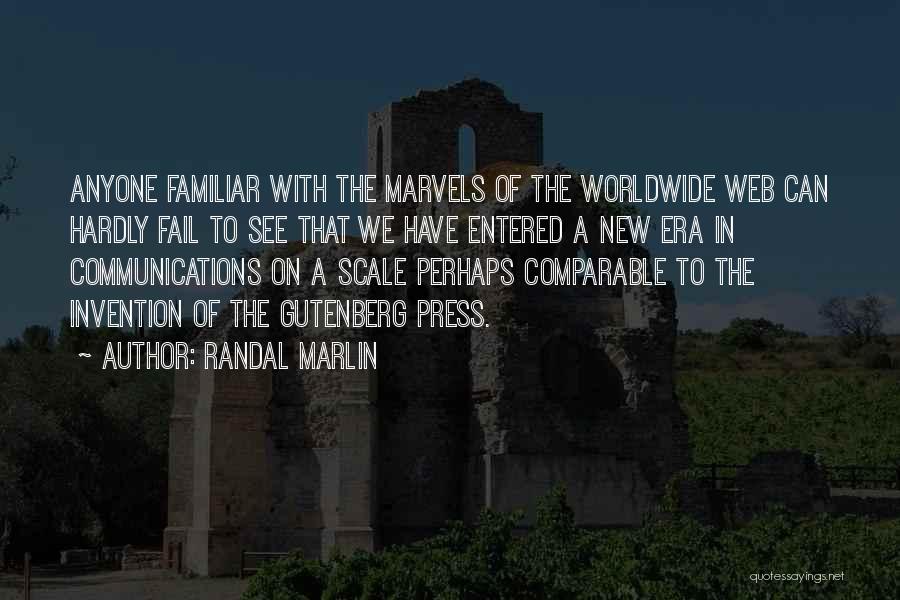
Anyone familiar with the marvels of the Worldwide Web can hardly fail to see that we have entered a new era in communications on a scale perhaps comparable to the invention of the Gutenberg press. — Randal Marlin
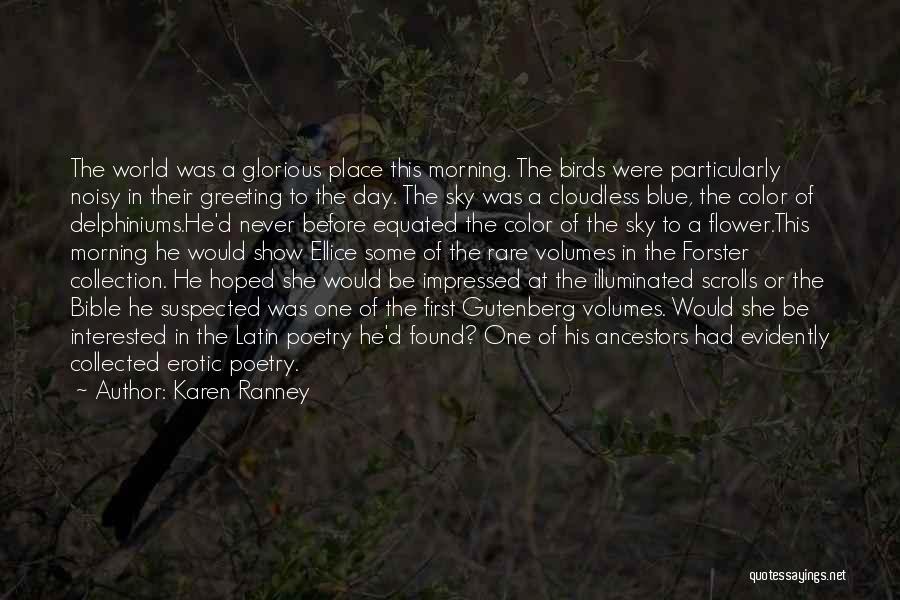
The world was a glorious place this morning. The birds were particularly noisy in their greeting to the day. The sky was a cloudless blue, the color of delphiniums.
He'd never before equated the color of the sky to a flower.
This morning he would show Ellice some of the rare volumes in the Forster collection. He hoped she would be impressed at the illuminated scrolls or the Bible he suspected was one of the first Gutenberg volumes. Would she be interested in the Latin poetry he'd found? One of his ancestors had evidently collected erotic poetry. — Karen Ranney
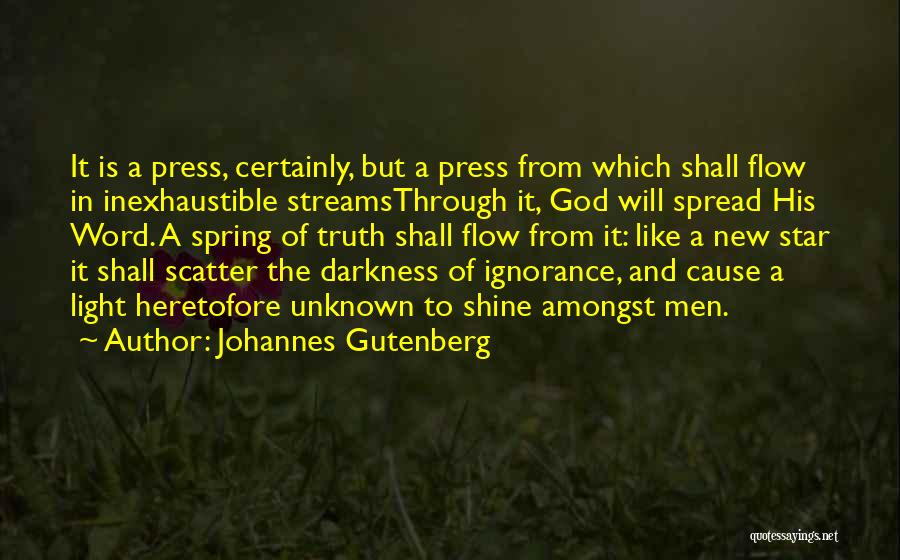
It is a press, certainly, but a press from which shall flow in inexhaustible streamsThrough it, God will spread His Word. A spring of truth shall flow from it: like a new star it shall scatter the darkness of ignorance, and cause a light heretofore unknown to shine amongst men. — Johannes Gutenberg
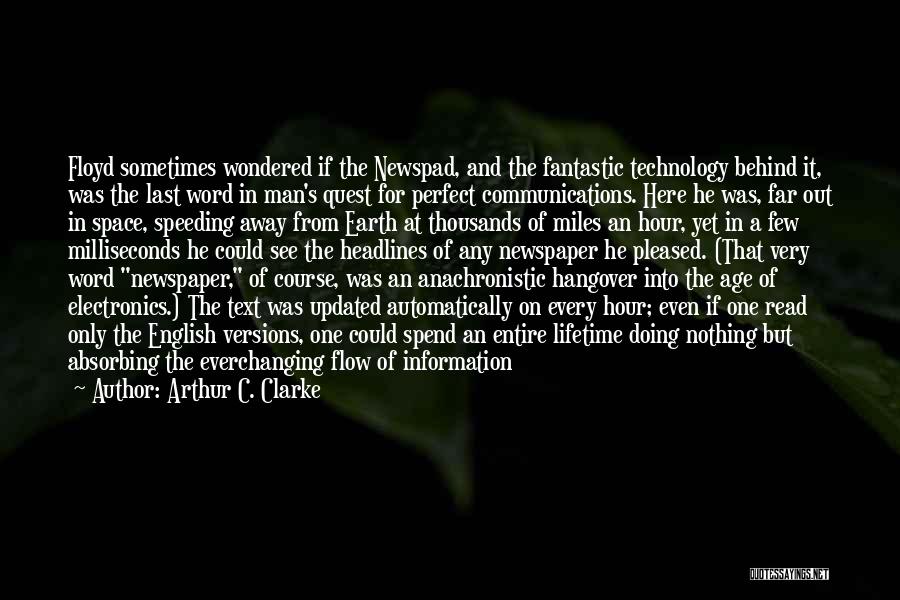
Floyd sometimes wondered if the Newspad, and the fantastic technology behind it, was the last word in man's quest for perfect communications. Here he was, far out in space, speeding away from Earth at thousands of miles an hour, yet in a few milliseconds he could see the headlines of any newspaper he pleased. (That very word "newspaper," of course, was an anachronistic hangover into the age of electronics.) The text was updated automatically on every hour; even if one read only the English versions, one could spend an entire lifetime doing nothing but absorbing the everchanging flow of information from the news satellites. It was hard to imagine how the system could be improved or made more convenient. But sooner or later, Floyd guessed, it would pass away, to be replaced by something as unimaginable as the Newspad itself would have been to Caxton or Gutenberg. — Arthur C. Clarke
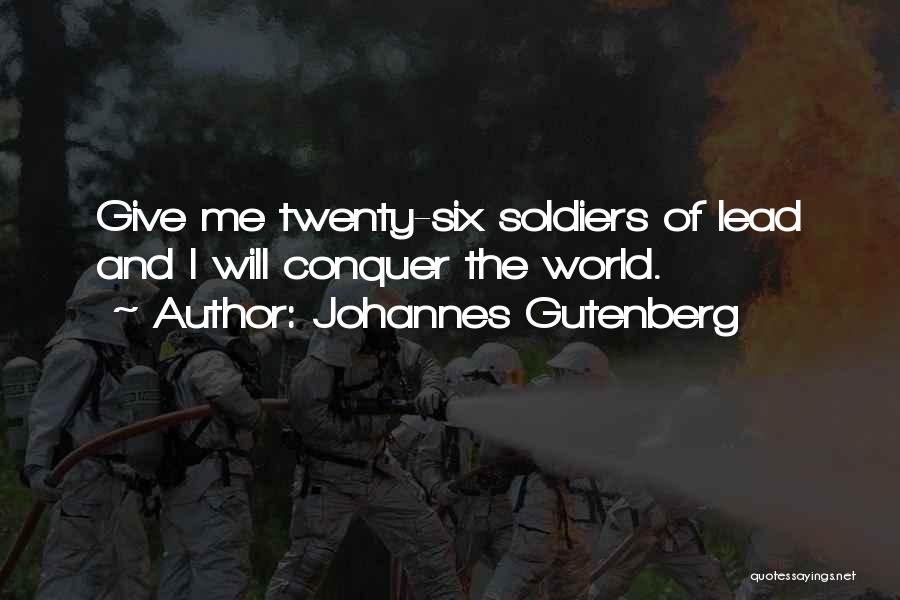
Give me twenty-six soldiers of lead and I will conquer the world. — Johannes Gutenberg
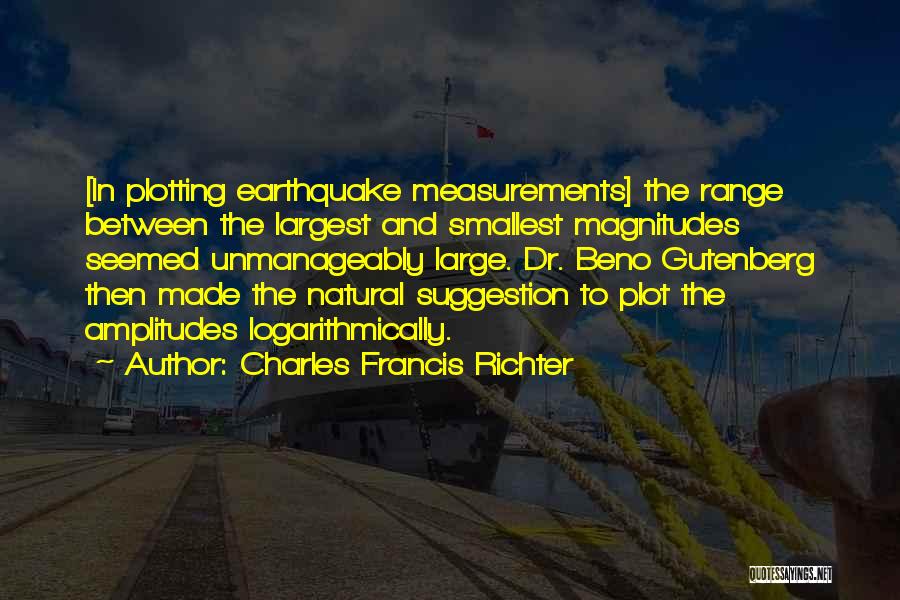
[In plotting earthquake measurements] the range between the largest and smallest magnitudes seemed unmanageably large. Dr. Beno Gutenberg then made the natural suggestion to plot the amplitudes logarithmically. — Charles Francis Richter
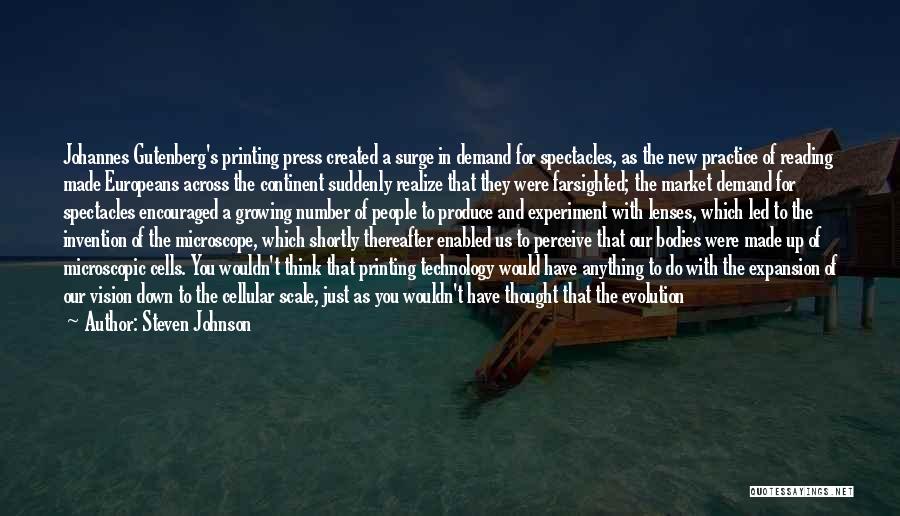
Johannes Gutenberg's printing press created a surge in demand for spectacles, as the new practice of reading made Europeans across the continent suddenly realize that they were farsighted; the market demand for spectacles encouraged a growing number of people to produce and experiment with lenses, which led to the invention of the microscope, which shortly thereafter enabled us to perceive that our bodies were made up of microscopic cells. You wouldn't think that printing technology would have anything to do with the expansion of our vision down to the cellular scale, just as you wouldn't have thought that the evolution of pollen would alter the design of a hummingbird's wing. But that is the way change happens. — Steven Johnson
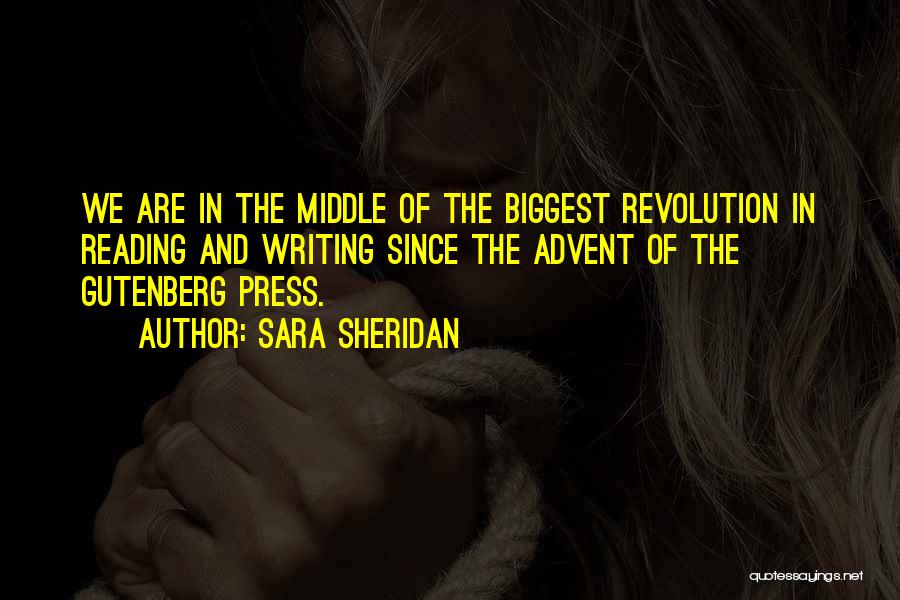
We are in the middle of the biggest revolution in reading and writing since the advent of the Gutenberg press. — Sara Sheridan
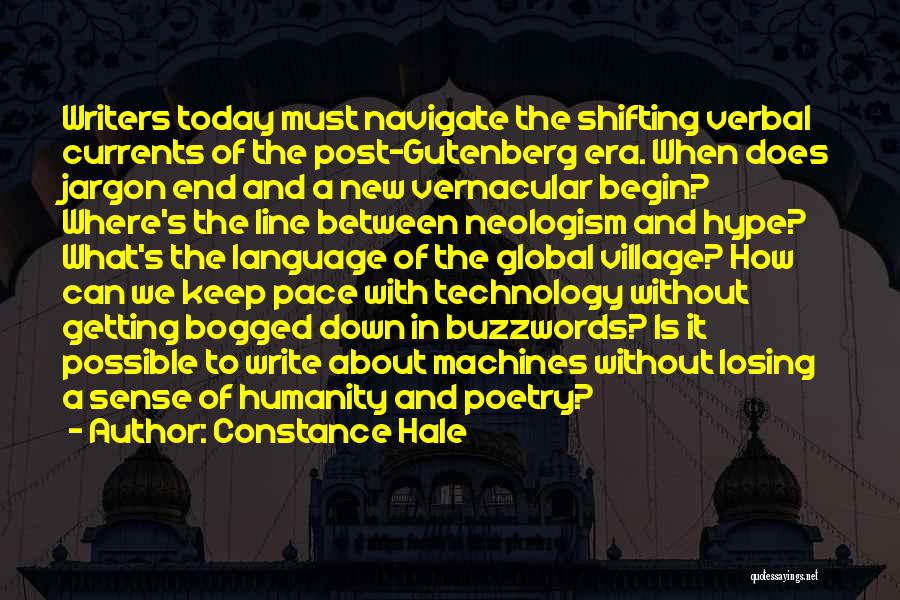
Writers today must navigate the shifting verbal currents of the post-Gutenberg era. When does jargon end and a new vernacular begin? Where's the line between neologism and hype? What's the language of the global village? How can we keep pace with technology without getting bogged down in buzzwords? Is it possible to write about machines without losing a sense of humanity and poetry? — Constance Hale
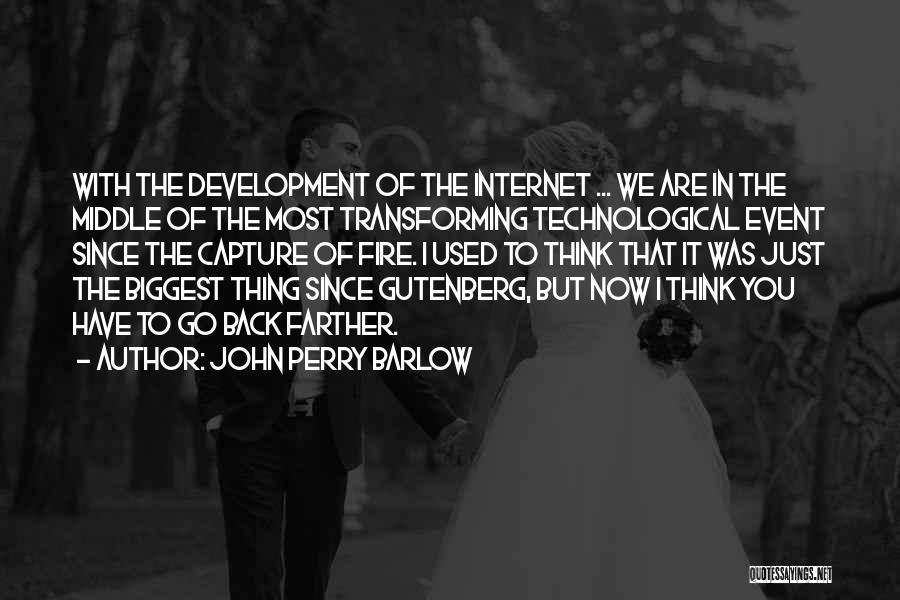
With the development of the Internet ... we are in the middle of the most transforming technological event since the capture of fire. I used to think that it was just the biggest thing since Gutenberg, but now I think you have to go back farther. — John Perry Barlow
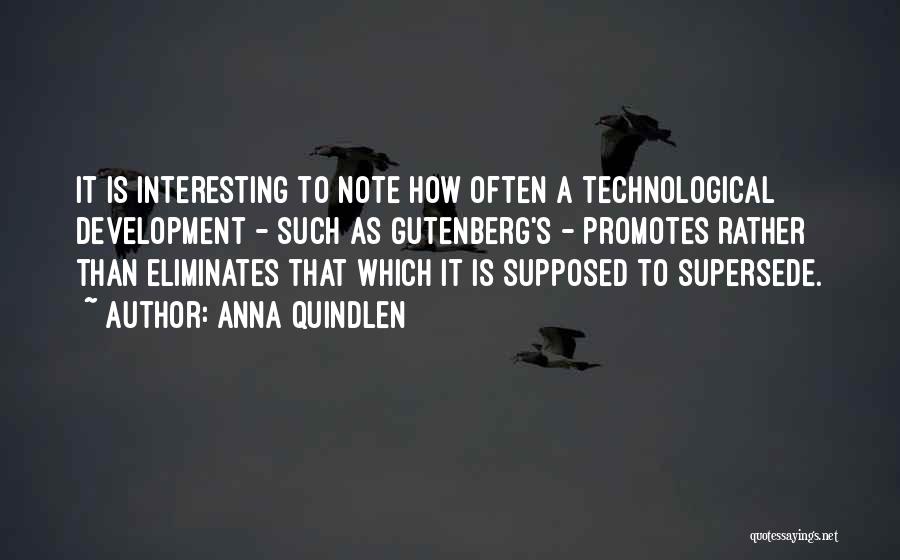
It is interesting to note how often a technological development - such as Gutenberg's - promotes rather than eliminates that which it is supposed to supersede. — Anna Quindlen
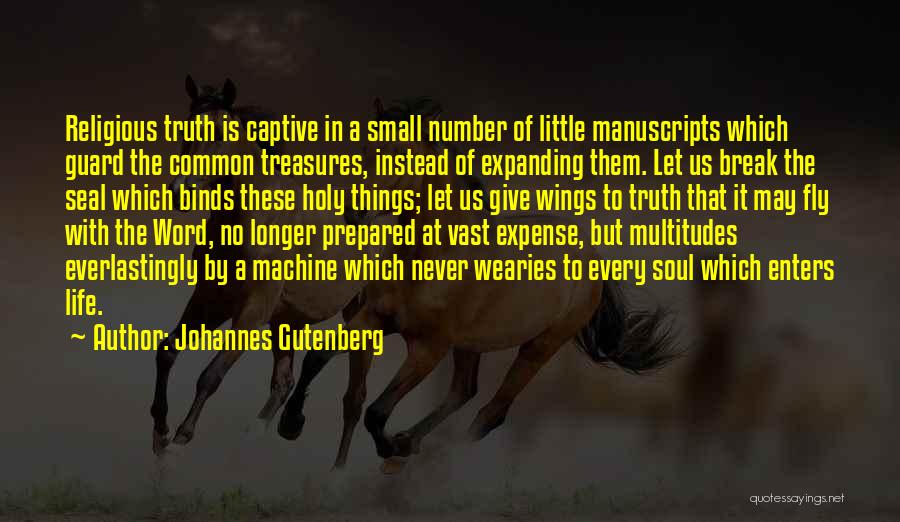
Religious truth is captive in a small number of little manuscripts which guard the common treasures, instead of expanding them. Let us break the seal which binds these holy things; let us give wings to truth that it may fly with the Word, no longer prepared at vast expense, but multitudes everlastingly by a machine which never wearies to every soul which enters life. — Johannes Gutenberg
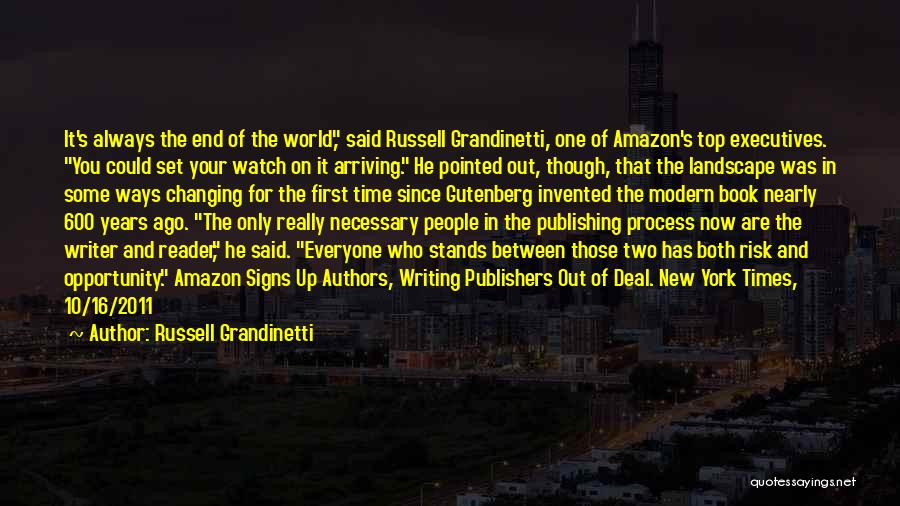
It's always the end of the world," said Russell Grandinetti, one of Amazon's top executives. "You could set your watch on it arriving." He pointed out, though, that the landscape was in some ways changing for the first time since Gutenberg invented the modern book nearly 600 years ago. "The only really necessary people in the publishing process now are the writer and reader," he said. "Everyone who stands between those two has both risk and opportunity." Amazon Signs Up Authors, Writing Publishers Out of Deal. New York Times, 10/16/2011 — Russell Grandinetti
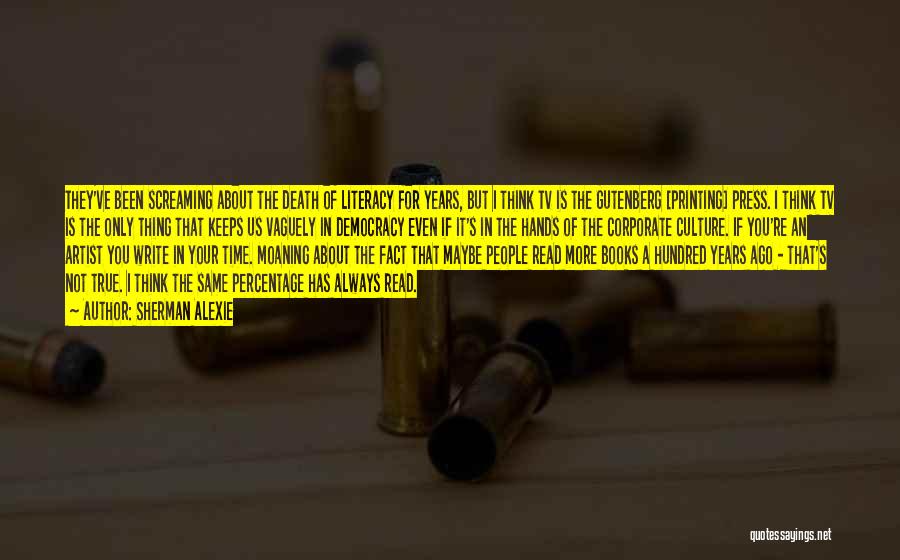
They've been screaming about the death of literacy for years, but I think TV is the Gutenberg [printing] press. I think TV is the only thing that keeps us vaguely in democracy even if it's in the hands of the corporate culture. If you're an artist you write in your time. Moaning about the fact that maybe people read more books a hundred years ago - that's not true. I think the same percentage has always read. — Sherman Alexie
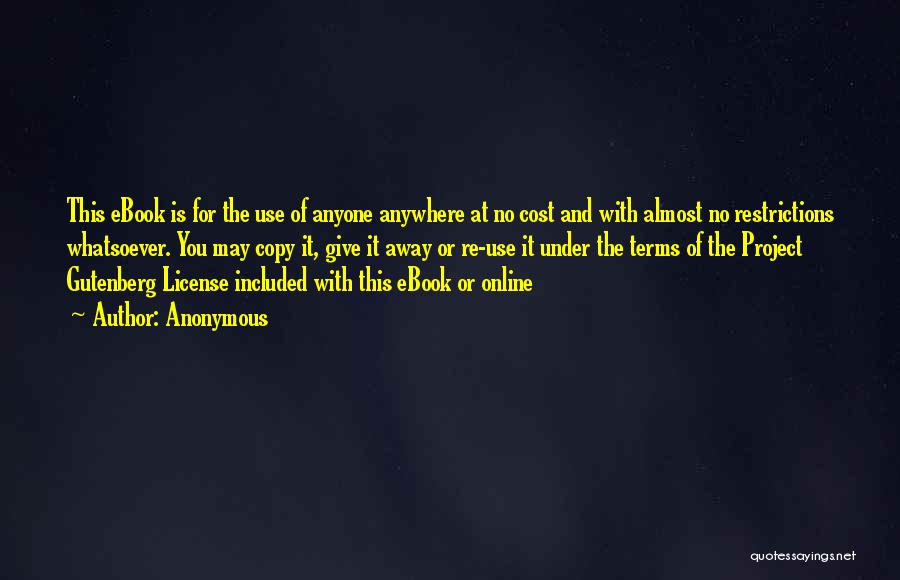
This eBook is for the use of anyone anywhere at no cost and with almost no restrictions whatsoever. You may copy it, give it away or re-use it under the terms of the Project Gutenberg License included with this eBook or online — Anonymous
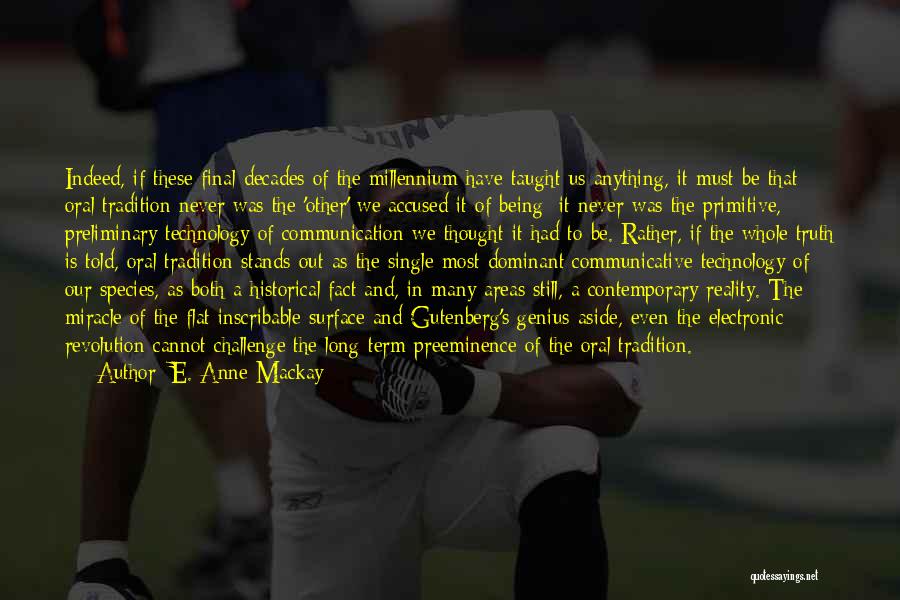
Indeed, if these final decades of the millennium have taught us anything, it must be that oral tradition never was the 'other' we accused it of being; it never was the primitive, preliminary technology of communication we thought it had to be. Rather, if the whole truth is told, oral tradition stands out as the single most dominant communicative technology of our species, as both a historical fact and, in many areas still, a contemporary reality. The miracle of the flat inscribable surface and Gutenberg's genius aside, even the electronic revolution cannot challenge the long-term preeminence of the oral tradition. ("Introduction" by John Foley) — E. Anne Mackay
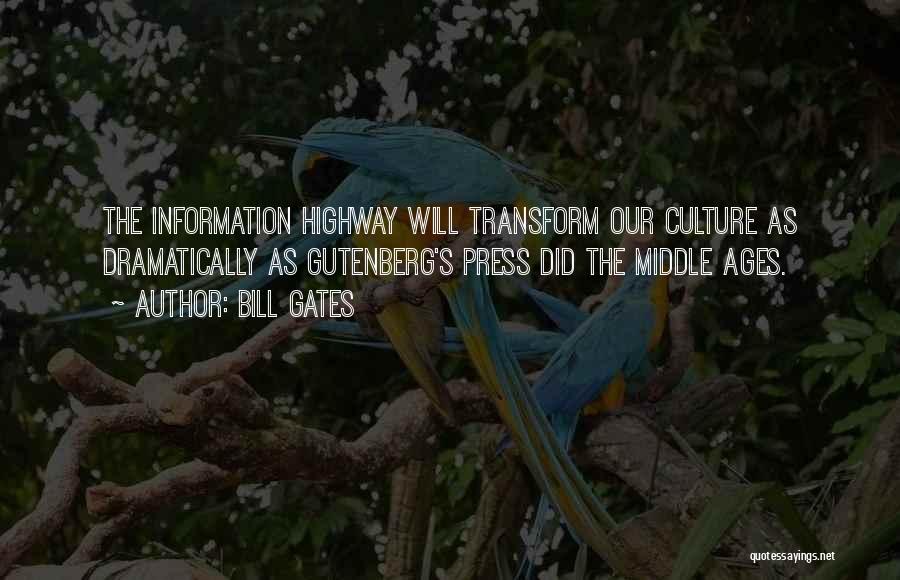
The information highway will transform our culture as dramatically as Gutenberg's press did the Middle Ages. — Bill Gates
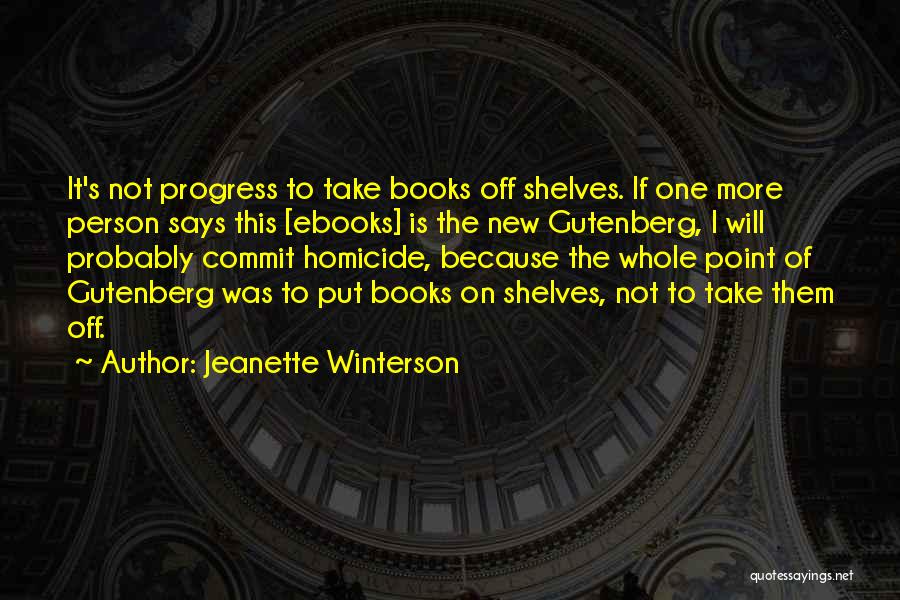
It's not progress to take books off shelves. If one more person says this [ebooks] is the new Gutenberg, I will probably commit homicide, because the whole point of Gutenberg was to put books on shelves, not to take them off. — Jeanette Winterson
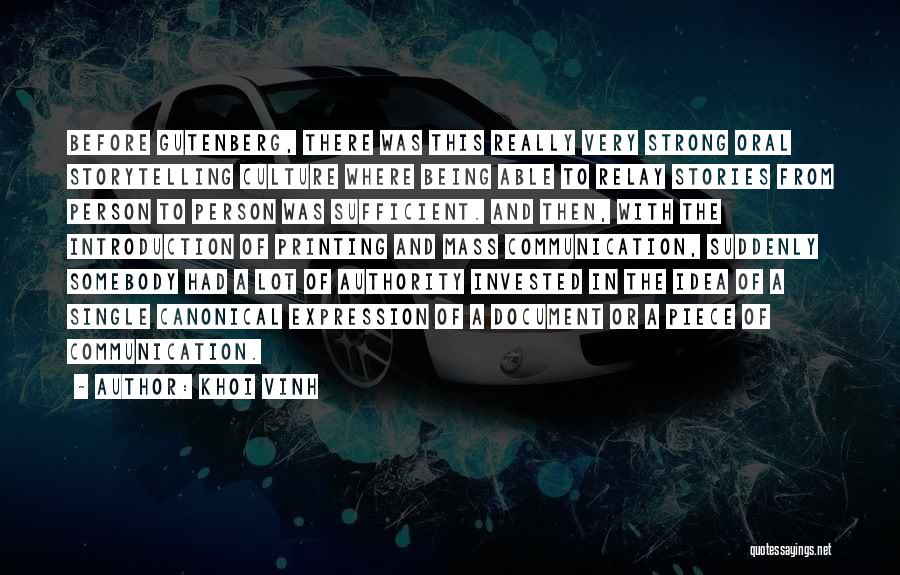
Before Gutenberg, there was this really very strong oral storytelling culture where being able to relay stories from person to person was sufficient. And then, with the introduction of printing and mass communication, suddenly somebody had a lot of authority invested in the idea of a single canonical expression of a document or a piece of communication. — Khoi Vinh
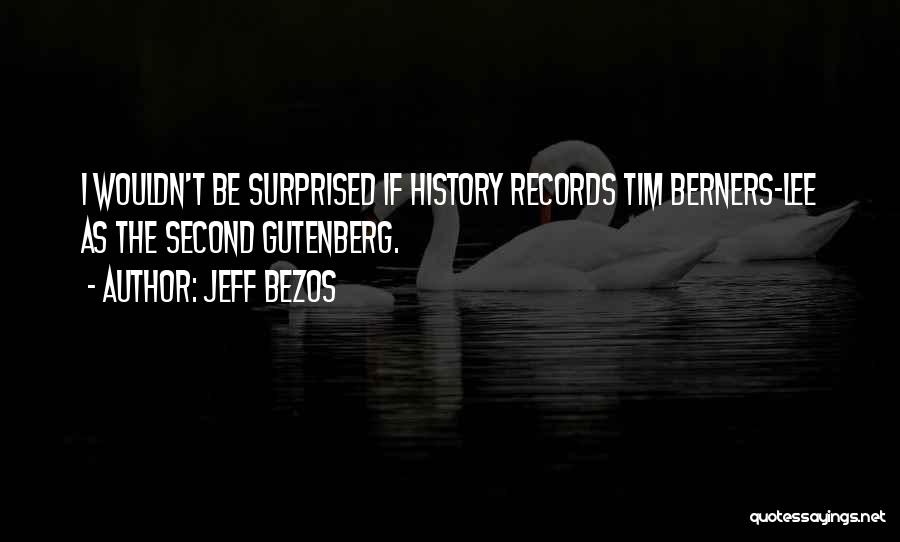
I wouldn't be surprised if history records Tim Berners-Lee as the second Gutenberg. — Jeff Bezos
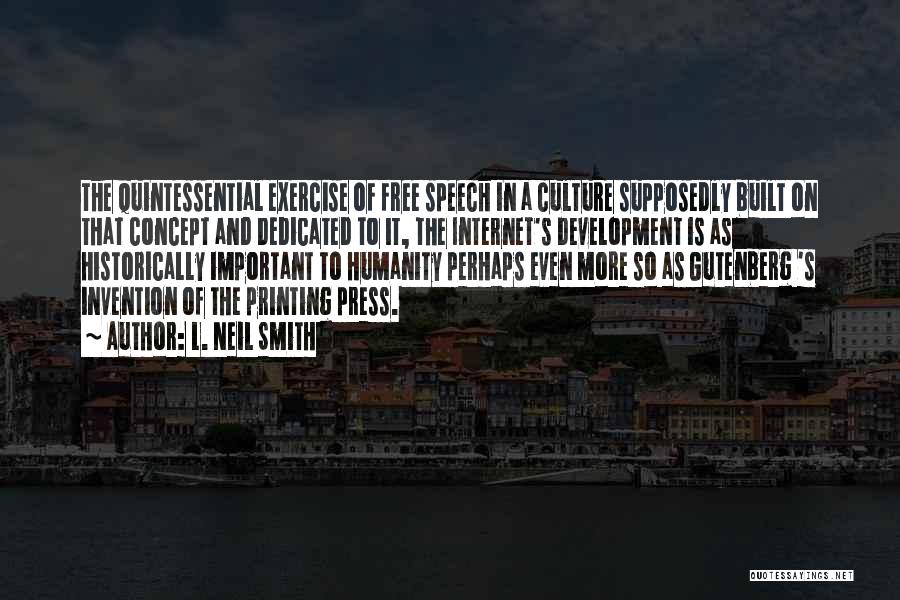
The quintessential exercise of free speech in a culture supposedly built on that concept and dedicated to it, the Internet's development is as historically important to humanity perhaps even more so as Gutenberg 's invention of the printing press. — L. Neil Smith

I owe all my knowledge to the German inventor, Johannes Gutenberg! — Mehmet Murat Ildan
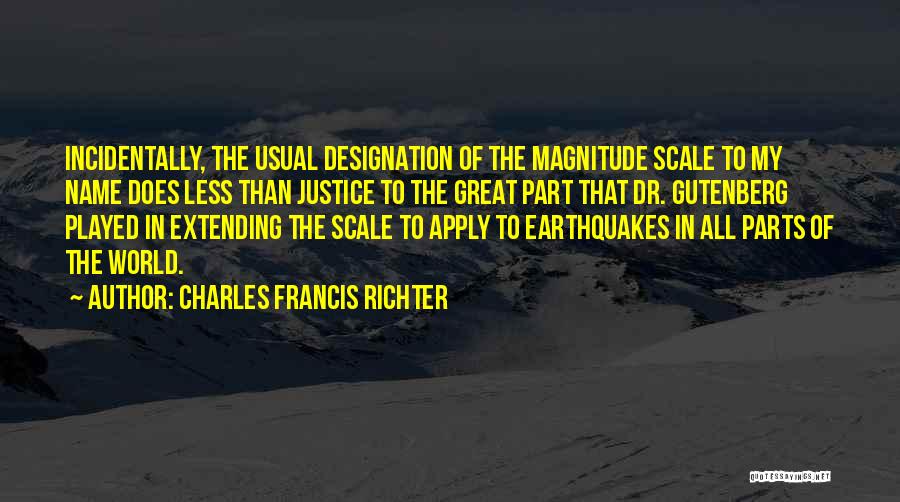
Incidentally, the usual designation of the magnitude scale to my name does less than justice to the great part that Dr. Gutenberg played in extending the scale to apply to earthquakes in all parts of the world. — Charles Francis Richter
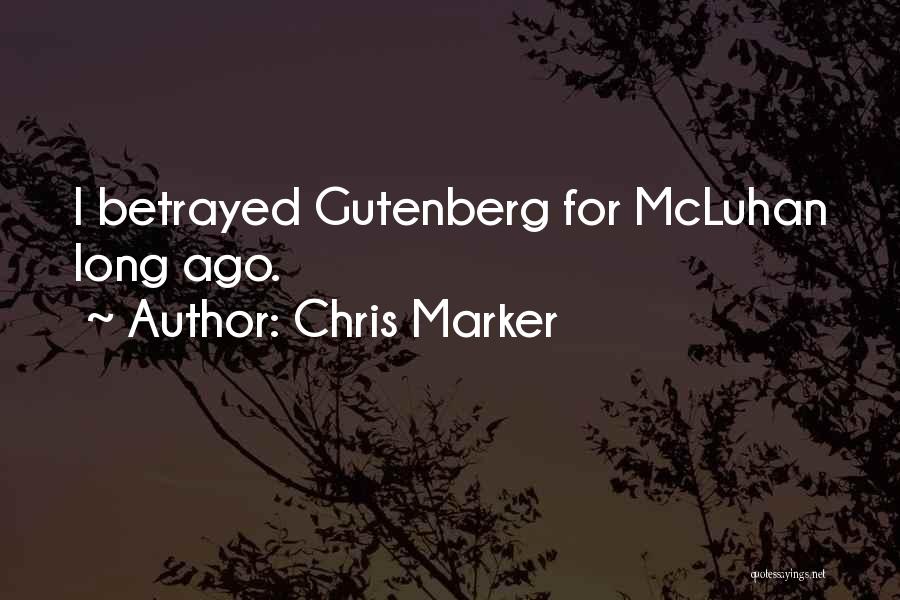
I betrayed Gutenberg for McLuhan long ago. — Chris Marker
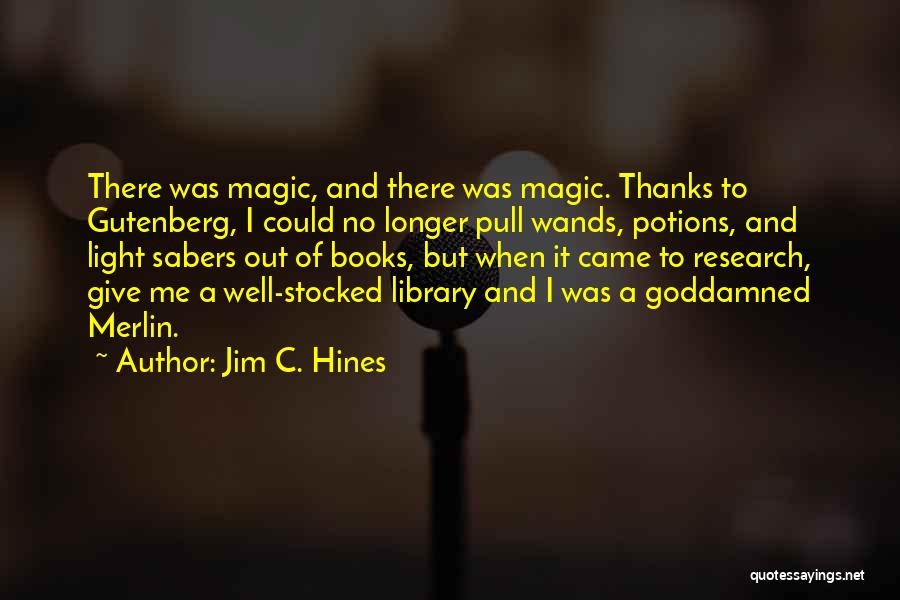
There was magic, and there was magic. Thanks to Gutenberg, I could no longer pull wands, potions, and light sabers out of books, but when it came to research, give me a well-stocked library and I was a goddamned Merlin. — Jim C. Hines

Charles Dickens [Project Gutenberg Editor's Note: There is also another version of this work etext98/grexp10.txt — Anonymous

I read more books for research purposes, whether it's a fictionalized biography of Johannes Gutenberg or a stack of urban fantasies. — Jim C. Hines
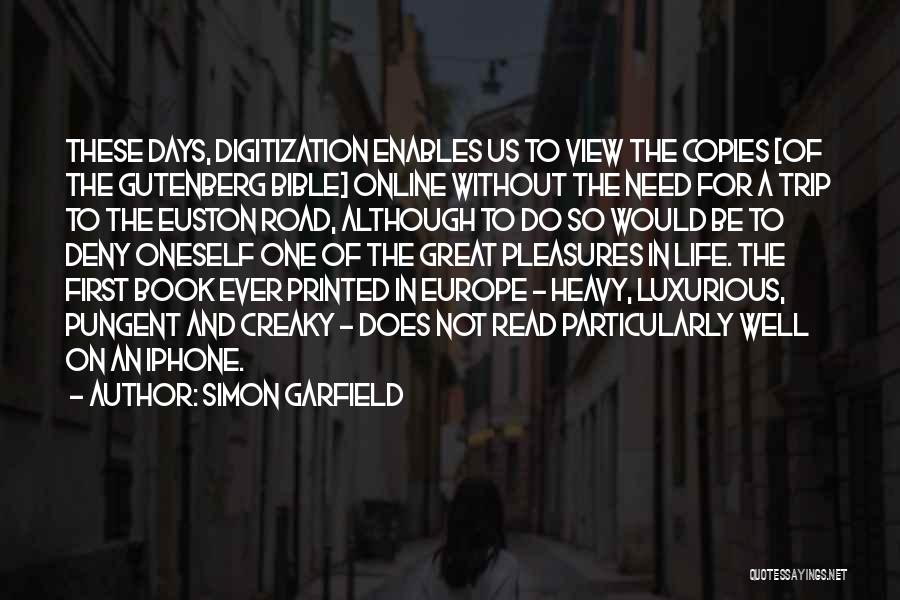
These days, digitization enables us to view the copies [of the Gutenberg Bible] online without the need for a trip to the Euston Road, although to do so would be to deny oneself one of the great pleasures in life. The first book ever printed in Europe - heavy, luxurious, pungent and creaky - does not read particularly well on an iPhone. — Simon Garfield
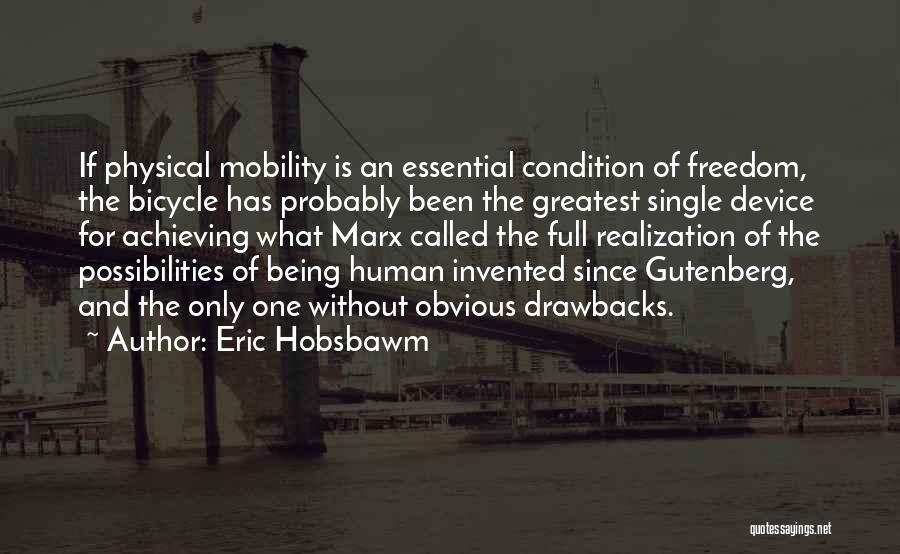
If physical mobility is an essential condition of freedom, the bicycle has probably been the greatest single device for achieving what Marx called the full realization of the possibilities of being human invented since Gutenberg, and the only one without obvious drawbacks. — Eric Hobsbawm
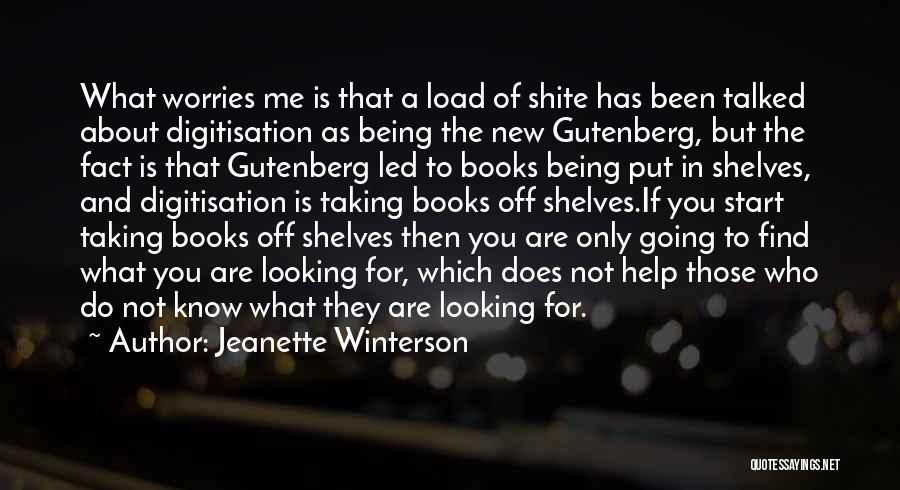
What worries me is that a load of shite has been talked about digitisation as being the new Gutenberg, but the fact is that Gutenberg led to books being put in shelves, and digitisation is taking books off shelves.
If you start taking books off shelves then you are only going to find what you are looking for, which does not help those who do not know what they are looking for. — Jeanette Winterson
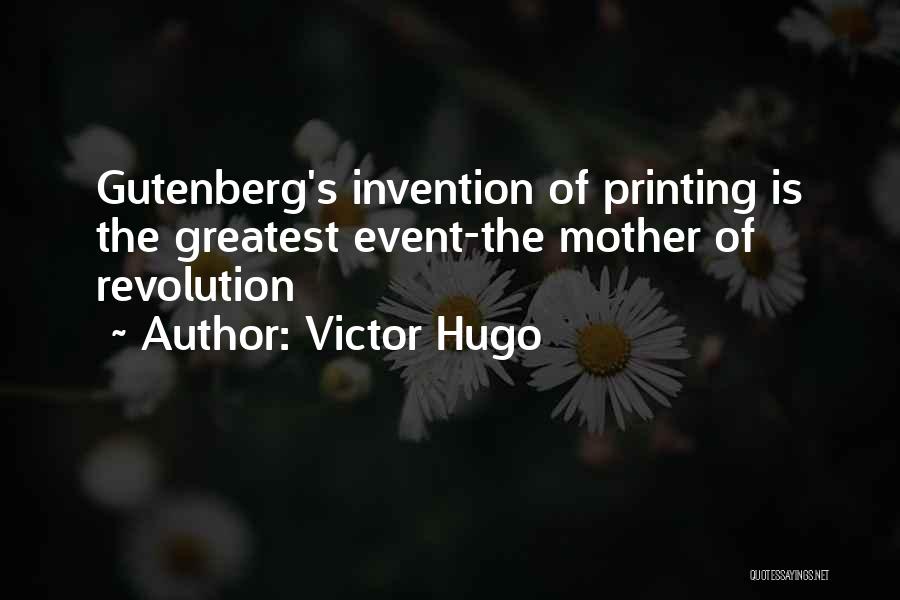
Gutenberg's invention of printing is the greatest event-the mother of revolution — Victor Hugo
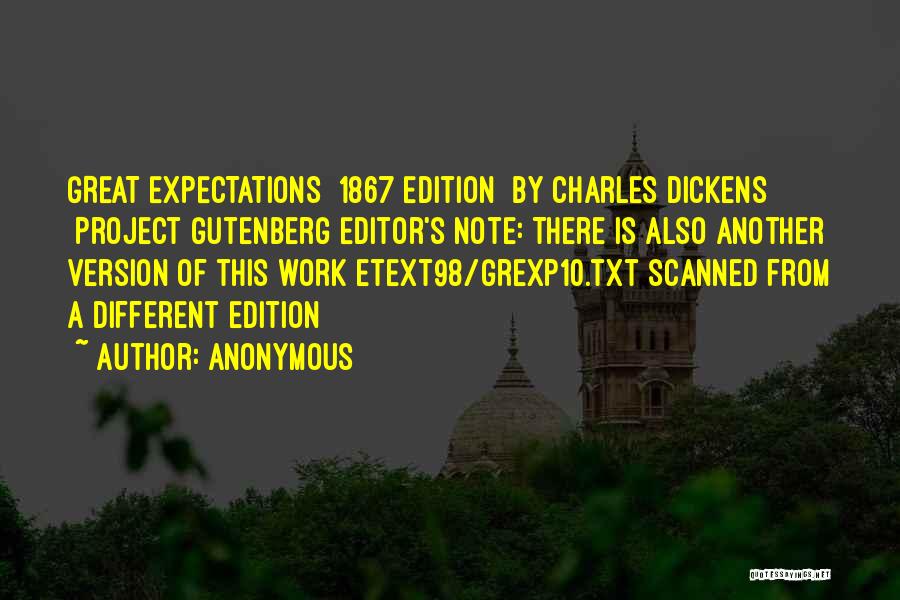
GREAT EXPECTATIONS [1867 Edition] by Charles Dickens [Project Gutenberg Editor's Note: There is also another version of this work etext98/grexp10.txt scanned from a different edition] — Anonymous
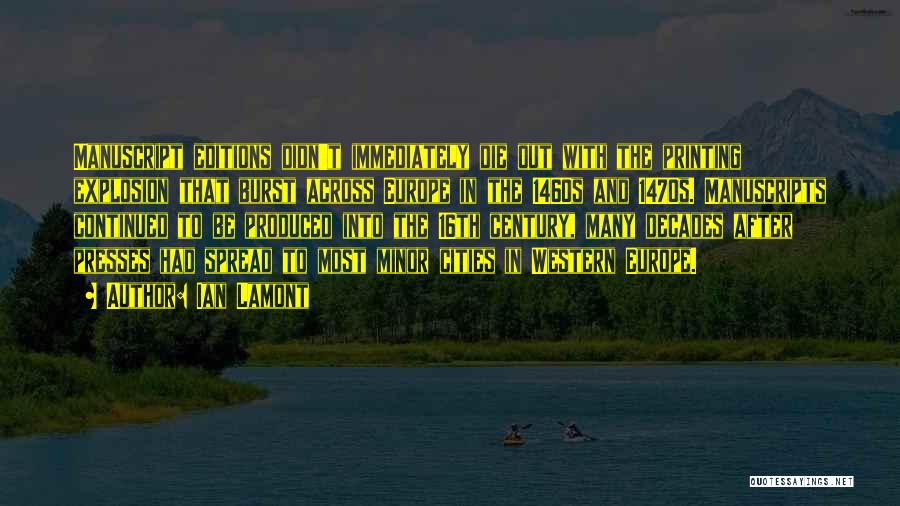
Manuscript editions didn't immediately die out with the printing explosion that burst across Europe in the 1460s and 1470s. Manuscripts continued to be produced into the 16th century, many decades after presses had spread to most minor cities in Western Europe. — Ian Lamont
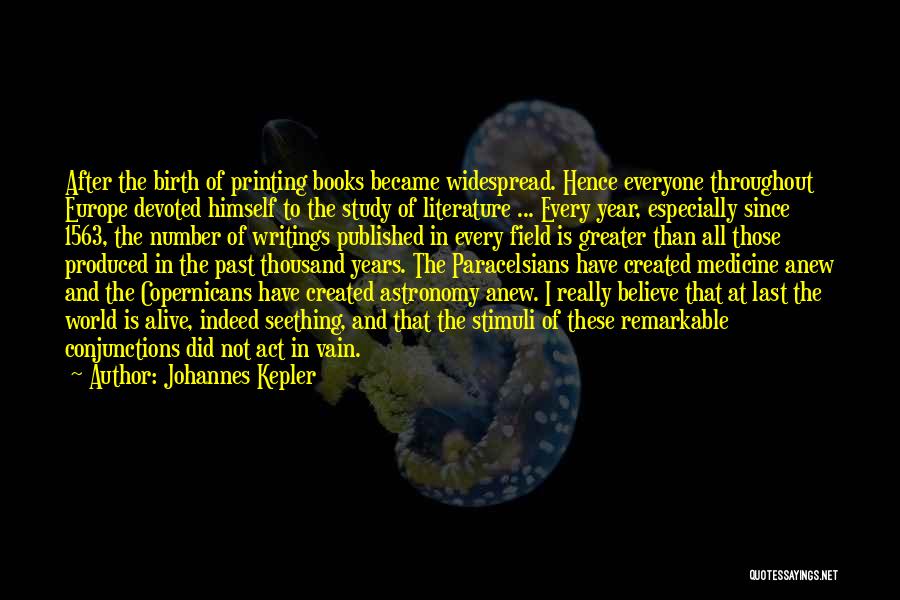
After the birth of printing books became widespread. Hence everyone throughout Europe devoted himself to the study of literature ... Every year, especially since 1563, the number of writings published in every field is greater than all those produced in the past thousand years. The Paracelsians have created medicine anew and the Copernicans have created astronomy anew. I really believe that at last the world is alive, indeed seething, and that the stimuli of these remarkable conjunctions did not act in vain. — Johannes Kepler
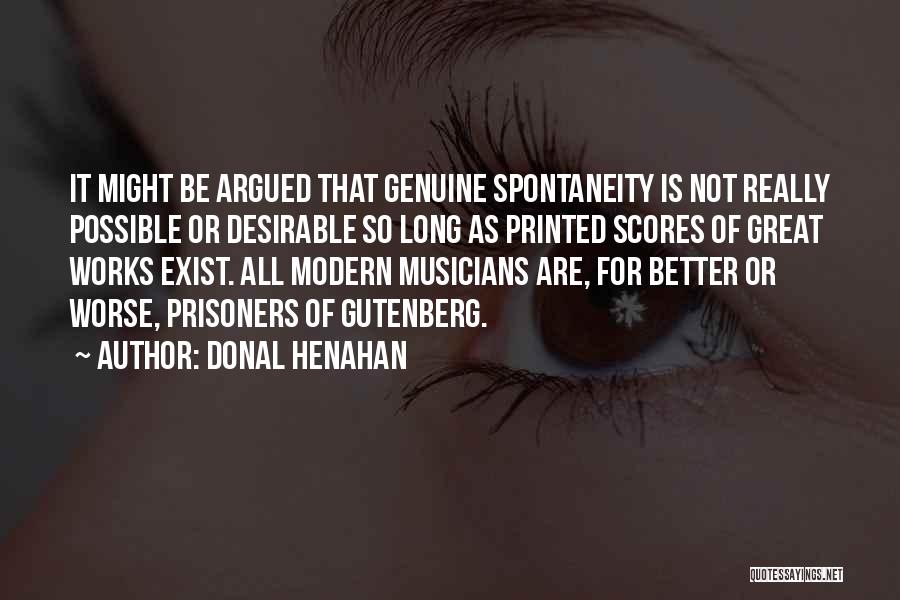
It might be argued that genuine spontaneity is not really possible or desirable so long as printed scores of great works exist. All modern musicians are, for better or worse, prisoners of Gutenberg. — Donal Henahan
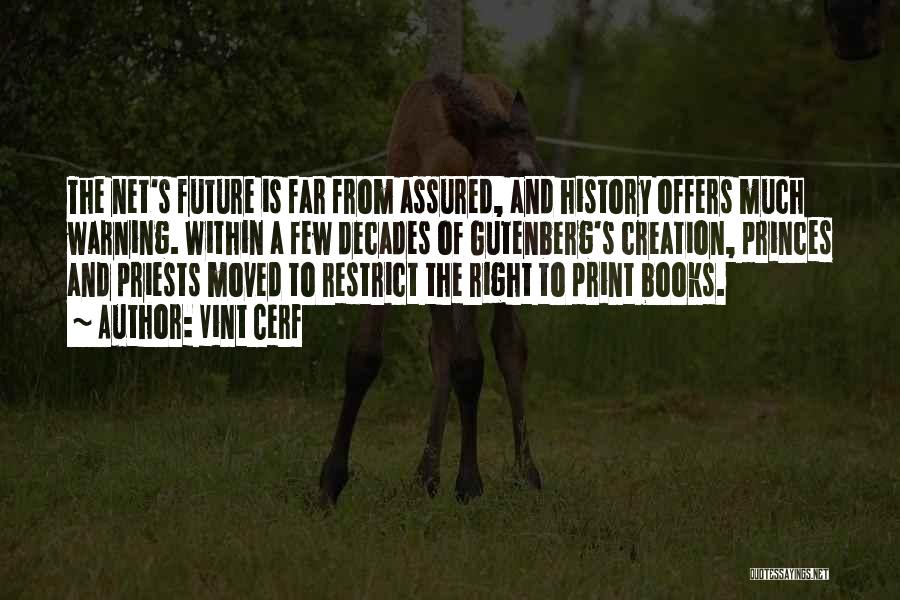
The net's future is far from assured, and history offers much warning. Within a few decades of Gutenberg's creation, princes and priests moved to restrict the right to print books. — Vint Cerf
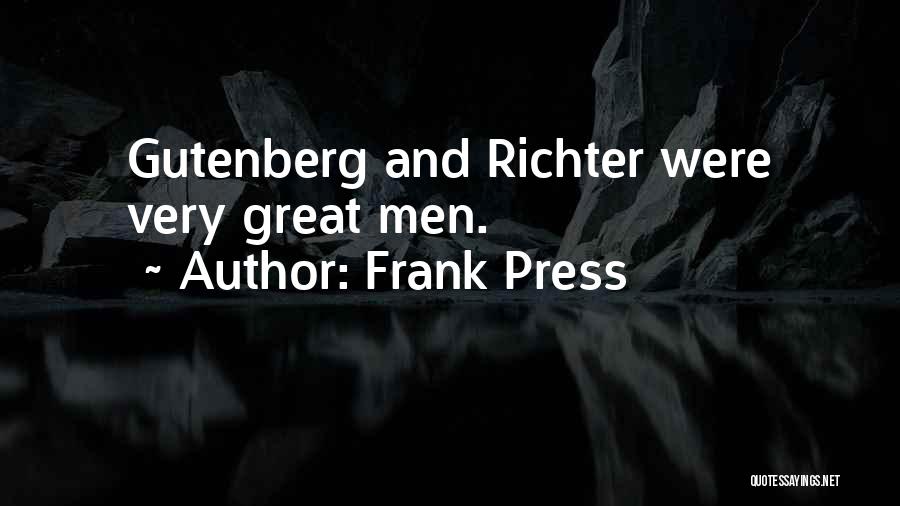
Gutenberg and Richter were very great men. — Frank Press
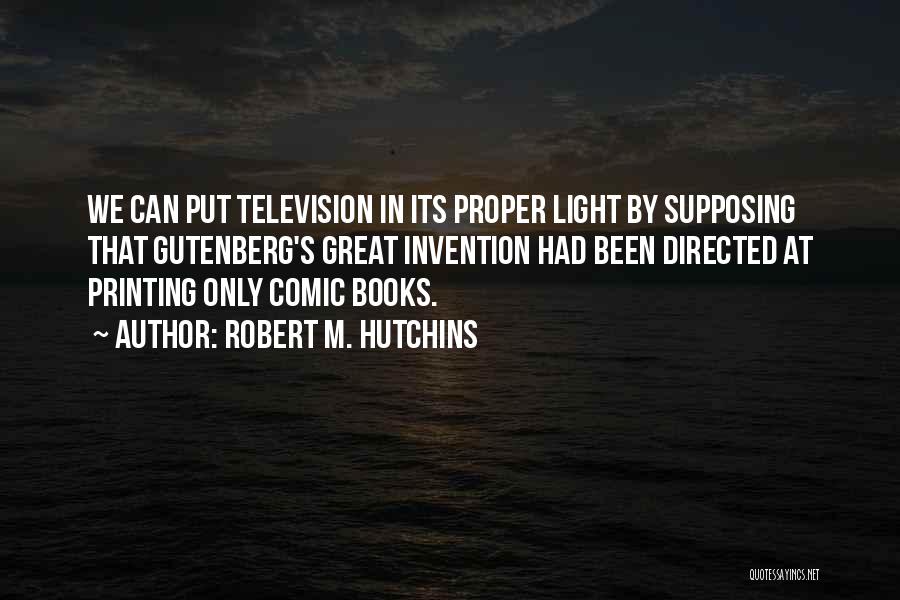
We can put television in its proper light by supposing that Gutenberg's great invention had been directed at printing only comic books. — Robert M. Hutchins
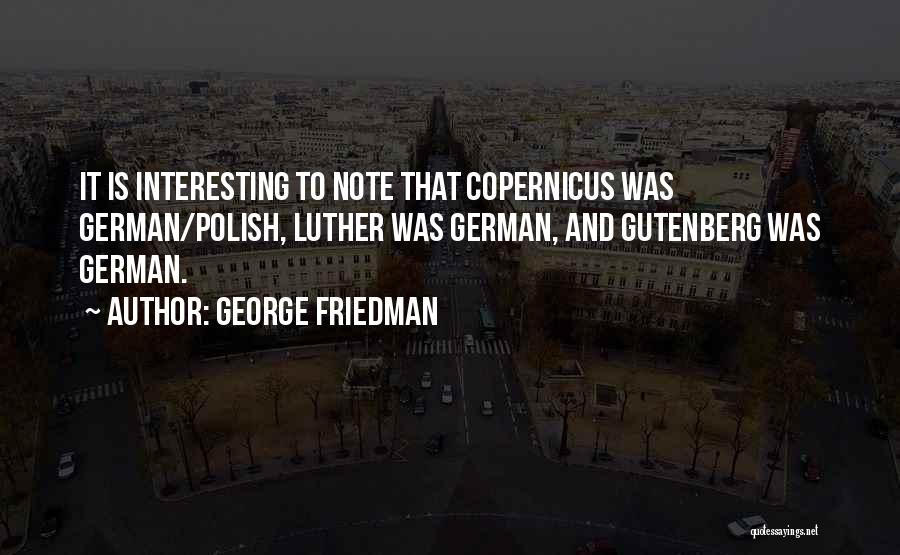
It is interesting to note that Copernicus was German/Polish, Luther was German, and Gutenberg was German. — George Friedman
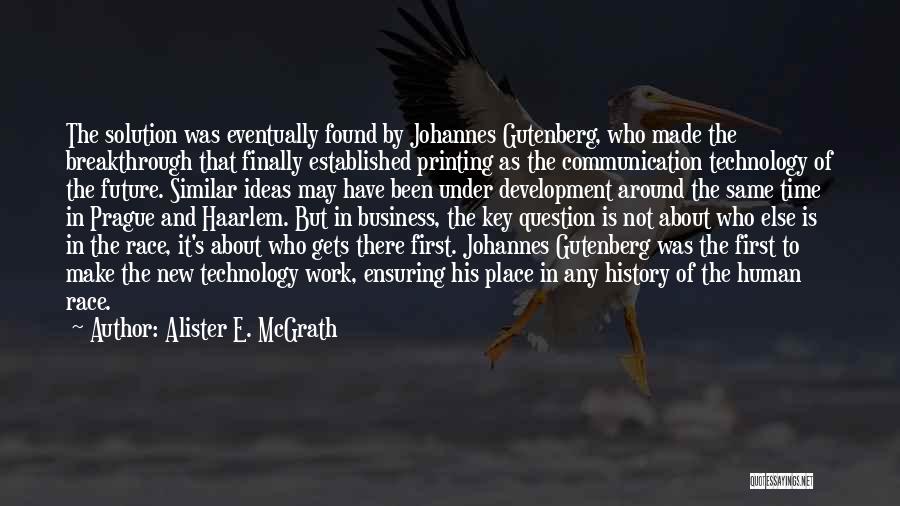
The solution was eventually found by Johannes Gutenberg, who made the breakthrough that finally established printing as the communication technology of the future. Similar ideas may have been under development around the same time in Prague and Haarlem. But in business, the key question is not about who else is in the race, it's about who gets there first. Johannes Gutenberg was the first to make the new technology work, ensuring his place in any history of the human race. — Alister E. McGrath
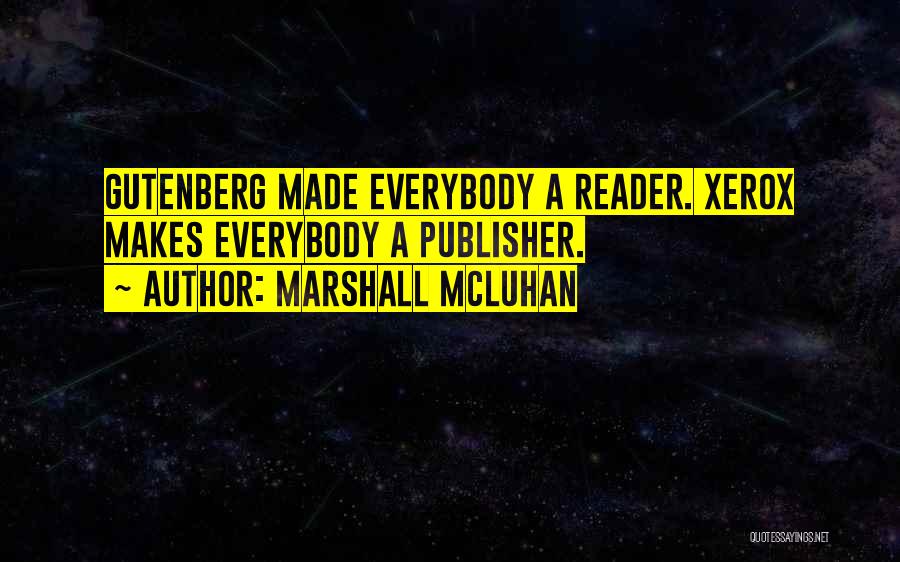
Gutenberg made everybody a reader. Xerox makes everybody a publisher. — Marshall McLuhan
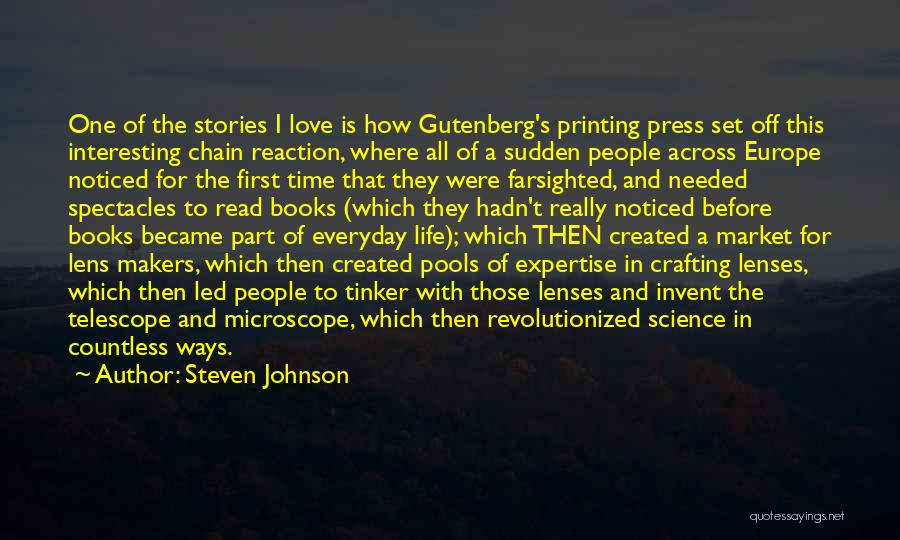
One of the stories I love is how Gutenberg's printing press set off this interesting chain reaction, where all of a sudden people across Europe noticed for the first time that they were farsighted, and needed spectacles to read books (which they hadn't really noticed before books became part of everyday life); which THEN created a market for lens makers, which then created pools of expertise in crafting lenses, which then led people to tinker with those lenses and invent the telescope and microscope, which then revolutionized science in countless ways. — Steven Johnson

While learning to code may have once been an arduous or expensive process, the college dropouts who developed Codecademy have democratized coding as surely as Gutenberg democratized text. Anyone can go to Codecademy and start learning and creating code through their simple, fun, interactive window, for free. — Douglas Rushkoff






